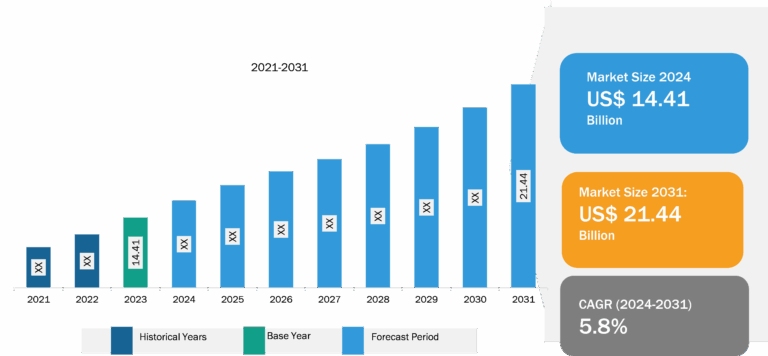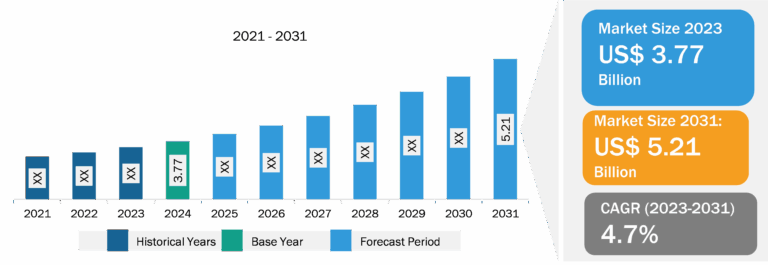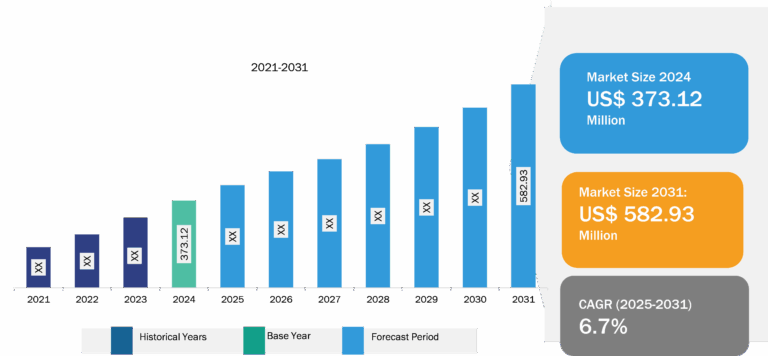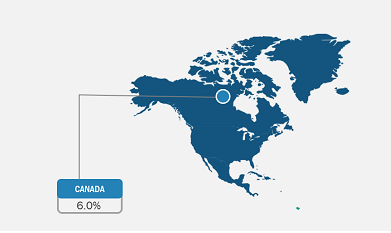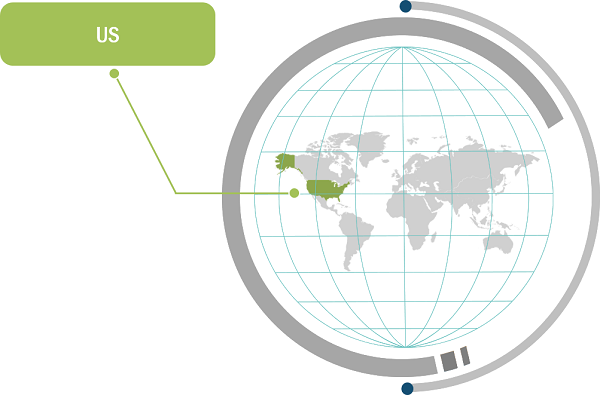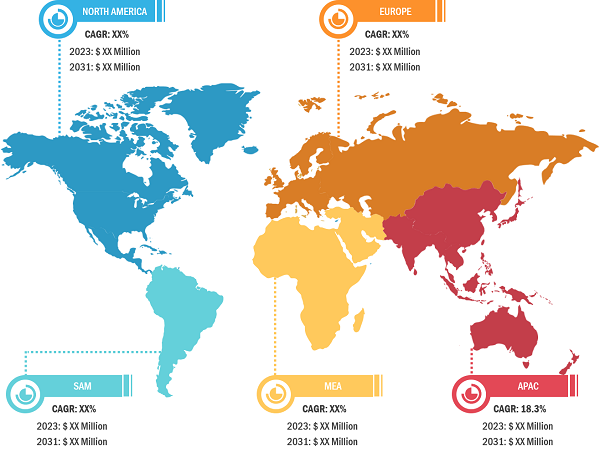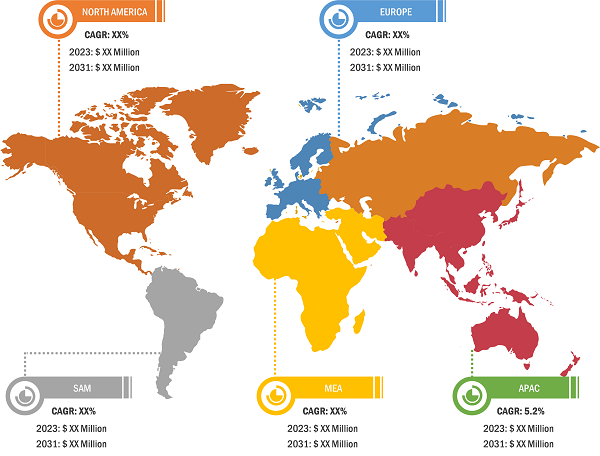
Radiation Hardened Feedback Sensors Market
Increasing Research and Development Activities to Fuel Radiation Hardened Feedback Sensors Market Growth During Forecast Period
The radiation hardened feedback sensors are designed to operate accurately and reliably in high-radiation environments. This type of environment requires continuous product innovation and advancement to meet the dynamic needs of different applications, such as aerospace & defense, nuclear power plants, space, and medical. Furthermore, R&D efforts focus on enhancing the radiation tolerance of feedback sensors to ensure that the sensor withstands a high radiation environment without hampering performance. Manufacturers across the globe are putting efforts to cater diverse needs of different applications by developing customized and application-specific radiation hardened feedback sensors. They work closely with customers to understand their unique needs and requirements for developing improved performance sensors.
Increasing focus on R&D activities has encouraged manufacturers to develop advanced sensing technologies and materials capable of providing appropriate feedback measurement in hazardous environments. For instance, in June 2023, Paragraf Limited comprehended the benefits and potential of graphene hall effect sensors in carrier mobility. The company provides graphene-based hall effect sensors for measuring magnetic fields. The development of graphene-based hall effect sensors improves the performance of conventional hall sensor applications and expands possible applications for EV battery systems. Thus, the constantly rising research and development activities are positively favoring the radiation hardened feedback sensors market.

Radiation Hardened Feedback Sensors Market: Industry Overview
The radiation hardened feedback sensors market is segmented on the basis of product, application, and end user. Based on sensor, the radiation hardened feedback sensors market is segmented into encoder, potentiometer, hall effect sensor, and resolver. On the basis of application, the radiation hardened feedback sensors market is categorized into aerospace and defense, space, nuclear power plant, and others. The space segment held the largest radiation hardened feedback sensors market share in 2023. In terms of geography, the market is segmented into North America, Europe, APAC, the MEA, and SAM.
According to the data from the International Trade Administration, Europe has one of the largest aerospace industries. With the increasing aerospace industry, the demand for radiation hardened feedback sensors is surging in the country. Europe is home to leading aerospace companies, including Airbus, Thales Alenia Space, and OHB SE, which are actively involved in the development and manufacturing of satellites for various applications such as Earth observation, telecommunications, navigation, and scientific research. The growing demand for satellite-based services and the deployment of satellite constellations drive the need for radiation hardened feedback sensors to ensure the reliability and performance of satellite systems in space. Further, the government of Europe is significantly investing in the aerospace industry. For instance, at the 2023 Paris Air Show, the UK Government announced US$ 229.2 million in funding to help develop cutting-edge green aviation technology and increase the UK’s global aerospace market share. This investment was made to create new, green, innovative landing equipment, more efficient aircraft wings, engines, and sensors, and lower carbon. Also, in March 2021, the UK Government invested US$ 104.4 million in five aerospace projects through the Aerospace Technology Institute (ATI) Program to improve manufacturing within the aerospace industry. Radiation hardened gyroscopes, accelerometers, and inertial measurement units (IMUs) are integral components of aircraft flight control systems, providing precise measurements of altitude, heading, and acceleration. These sensors enable autopilot systems, flight computers, and stability augmentation systems to maintain stable flight characteristics, stabilize aircraft dynamics, and respond to pilot inputs accurately. For example, commercial airliners and military aircraft use radiation hardened IMUs to monitor aircraft orientation, detect deviations from desired flight paths, and adjust control surfaces to maintain stability and control during flight maneuvers. Therefore, with the increasing aerospace industry, the demand for radiation hardened feedback sensors is expected to increase in Europe. Thus, after North America, Europe is estimated to hold a significant radiation hardened feedback sensors market share.
Radiation Hardened Feedback Sensors Market: Competitive Landscape and Key Developments
TT Electronics, Magics Technologies nv, Dynapar, Power Device Corporation, NewTek Sensor Solutions, Netzer Precision Position Sensors A.C.S. Ltd., Computer Conversions Corporation., Honeywell International Inc., and MACCON are among the key players profiled in the radiation hardened feedback sensors market report. Several other essential market players were analyzed for a holistic view of the market and its ecosystem.
The radiation hardened feedback sensors market report provides detailed market insights, which help the key players strategize their market growth. A few recent developments by the key players, as per company press releases, are mentioned below.
- In March 2023, the energy sector used NewTek LVDT position sensors as metrology tools to ensure the proper operation of different power systems. For example, position sensors monitor gas turbine servo controls, fuel valve position, and micro fuel valve openings in the operation of gas turbines.
- In March 2022, MACCON launched the Multi-Turn absolute Encoder VLM-60 for harsh environments. VLM-60 has versatile features that make it suitable for a wide range of demanding tasks in the aerospace, defense, medical, automotive, and robotics industries.

